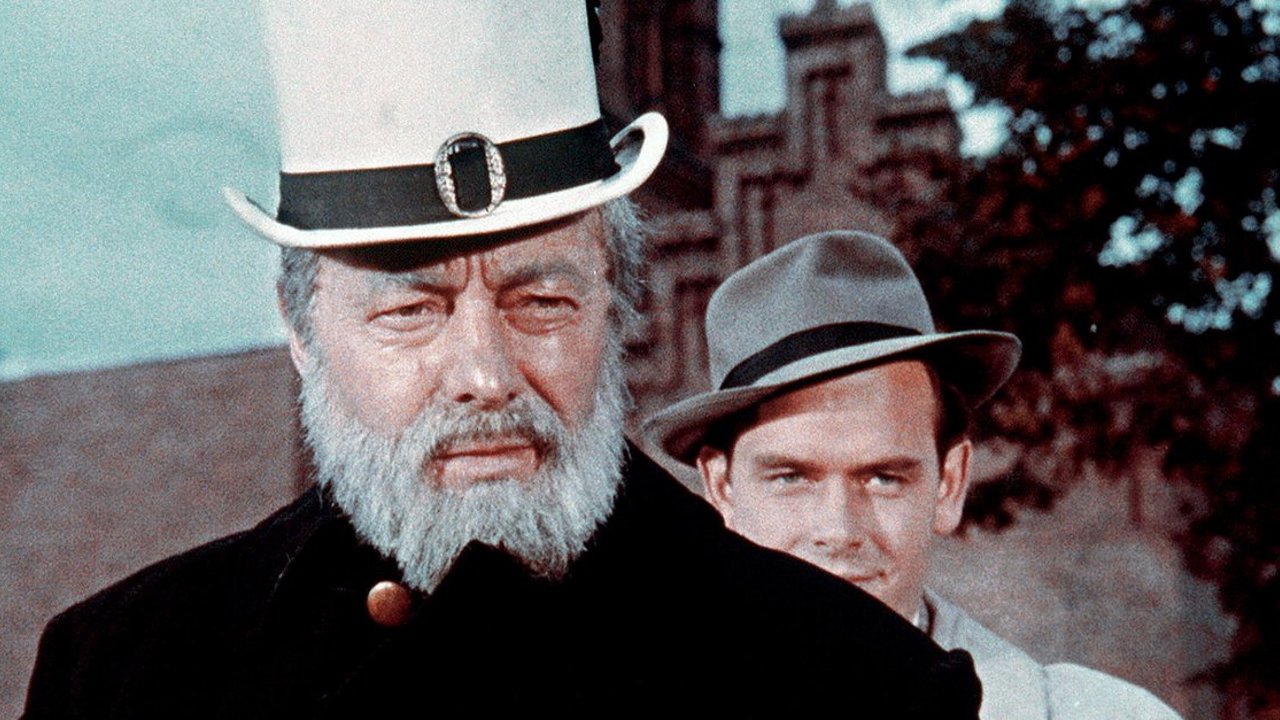

Top billed cast
 Heinz RühmannGustav Hartmann
Heinz RühmannGustav Hartmann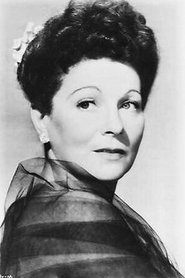 Lucie MannheimMarie Hartmann
Lucie MannheimMarie Hartmann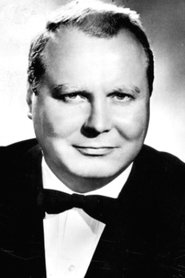 Ernst SchröderFriedrich Karl Möbius
Ernst SchröderFriedrich Karl Möbius Karin BaalAnni Hartmann
Karin BaalAnni Hartmann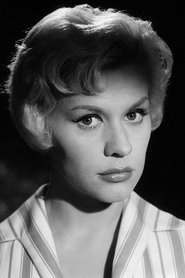 Ingrid van BergenGertrud Hartmann
Ingrid van BergenGertrud Hartmann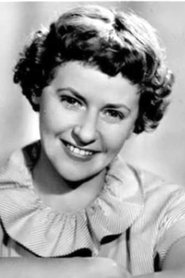 Ruth NimbachJohanna Möbius
Ruth NimbachJohanna Möbius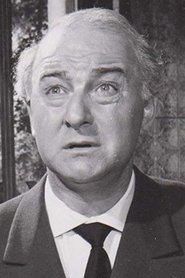 Ludwig LinkmannPaulchen Klinke
Ludwig LinkmannPaulchen KlinkeManfred GrotheMahrenholz
 Lutz MoikOtto Kroppke
Lutz MoikOtto Kroppke Hilde SessakFrau Vietzke
Hilde SessakFrau Vietzke
Similar to Der Eiserne Gustav
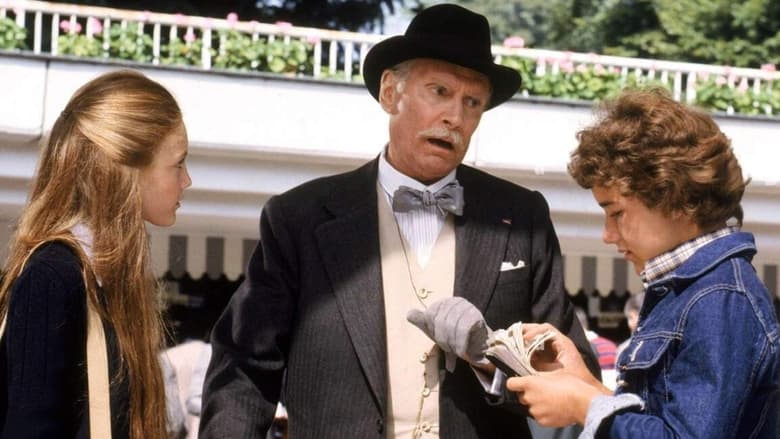
A Little Romance (1979)
Intellectually precocious teenager Lauren King lives in Paris with her somewhat ditzy mother. On a movie set, she strikes up a friendship with teenage film buff Daniel Michon. After Lauren's mother forbids her to date the outspoken Daniel, the young lovebirds team up with eccentric pickpocket Julius to run away to Venice, where, according to legend, a couple who kiss under the Bridge of Sighs will stay together forever.
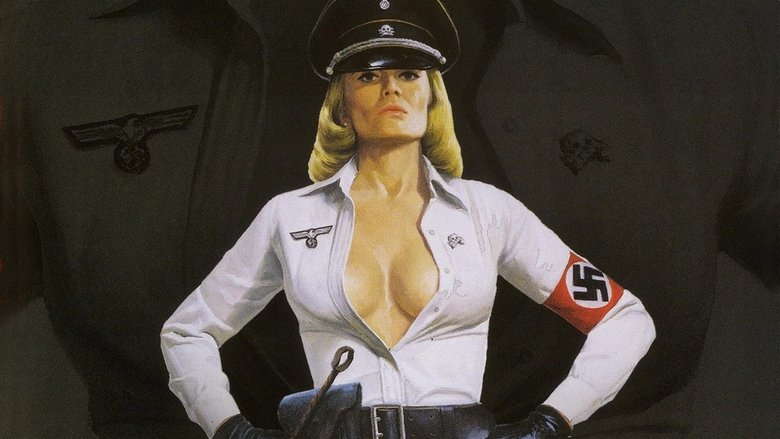
Ilsa: She Wolf of the SS (1975)
Ilsa, a warden at a Nazi death camp that conducts experiments on prisoners, strives to prove that women can withstand more pain and suffering than men, and therefore should be allowed to fight on the frontlines.
The Hero (2016)
Andrey Kulikov goes to Paris to visit the grave of his great-grandfather, Andrey Dolmatov, who had been an officer in the White Army during the Russian Revolution. On the headstone of the grave next to his great-grandfather's, he notices the face of a young woman. Later, while walking through Paris, Andrey sees a woman, Vera, who looks just like the young woman he had seen on the headstone. And so begins the telling of two love stories, separated by three generations and one hundred years.
La Missione del Mandrillo (1975)
Pietro Rossini is a strapping young man that unfortunately spends most of his time at work chasing after two pretty young secretaries who are only too happy to return his advances. Tired of this endless chase and work waste, his boss sends him on an errand to Paris hoping this will help productivity around the office. Pietro quickly hits up his friend for a woman he can fool around with while he's in Paris, but Rita, the woman he meets, ends up being an large, boorish, unsightly woman. Once he arrives at his hotel, Pietro meets the young and lovely Nancy and attempts to romance her as best he can, but no matter where he goes, Rita is not far behind.

Johanne Sacreblu: ahora es más personal (2025)
Johanne Sacreblu discovers that she is the chosen one of an old prophecy and her mission is to go in search of a sacred bread known as the Croaguette to restore glory to France.
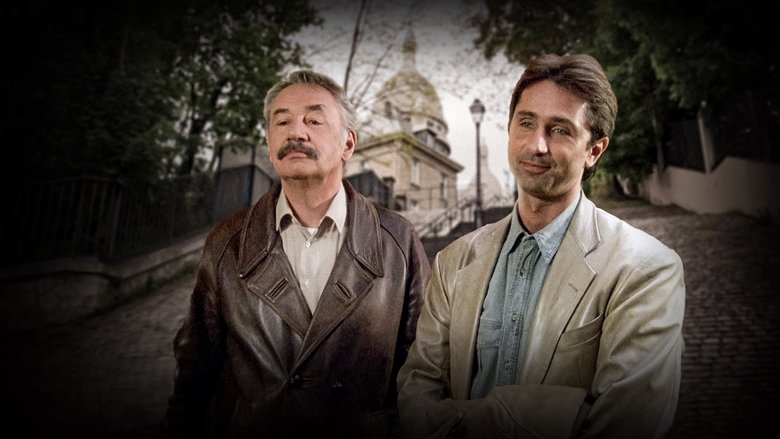
My New Partner II (1990)
The partners are back and are in a tight spot! Francois is going through a moral crisis, and Rene is experiencing the same. But, honesty is not always the best policy. After being suspended for their actions, they return to face their far more crooked replacements.

The Invisible Circus (2001)
After learning that her sister, Faith, has committed suicide in Portugal, Phoebe, an 18-year-old hippie, decides to uproot from her San Francisco home to travel to Europe. Phoebe hopes to discover and experience the life that led to her sister's death by retracing her footsteps, which eventually leads to Wolf -- Faith's boyfriend. However, as Phoebe's journey continues, a series of visions of Faith pushes her mind to the brink.

We Are Family (2016)
Thirteen-year-old Bastien is the center of a reconstructed family: six half-brothers and sisters, eight "parents," and as many houses. His tasks within the family are far more complex than what he has to do at school. But enough's enough: the children decide to wage a revolution and turn the rules upside down. All together, they squat a large apartment and now it'll be up to the parents to come to them!
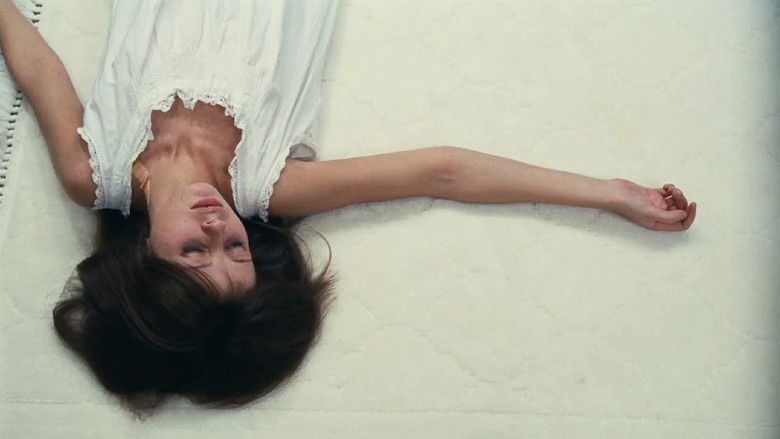
Juliet in Paris (1967)
A young student, alone in Paris, is engaged in strange and bloody experiences of which she is both the authorizer and the victim.
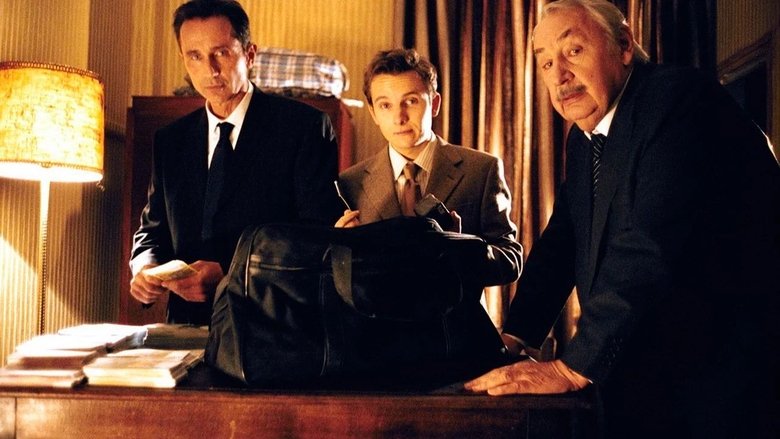
My New Partner III (2003)
It's been ten years since the paths of René and François parted ways. From the glorious era when, as cops, they roamed the Montmartre district, they only have a handful of memories left, the money from their cronies having evaporated over time. Everything comes to an end. Until it starts again.
A Time Apart
Alyssa (Lana Boy) follows her artistic aspirations to Los Angeles, leaving behind her husband Luka (Emmanuel Berthelot), who promises to join her later. The pandemic-induced lockdowns force them apart, straining their relationship until the couple decides it’s best to separate. Upon returning to Paris to finalize her divorce, Alyssa finds herself engulfed in her past life with Luka and old friends, all of which have moved on. She starts to question whether she was selfish to leave her past life behind in pursuit of career goals. Should she have been happy with the “little life” she left behind? Could she have been?
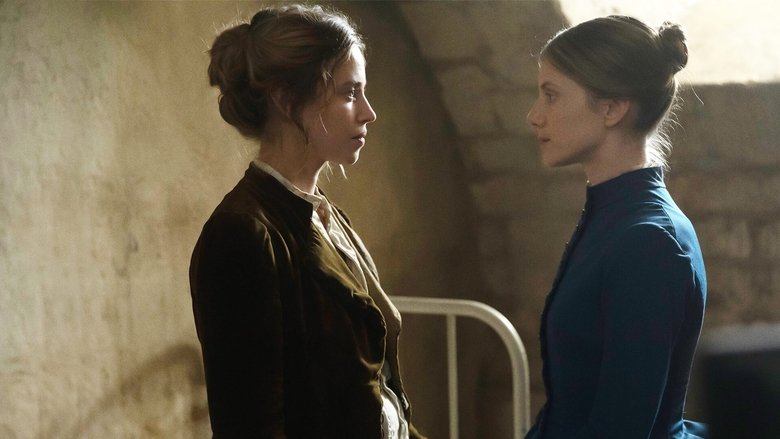
The Mad Women's Ball (2021)
A woman who is unfairly institutionalized at a Paris asylum plots to escape with the help of one of its nurses. Based on the novel 'Le bal des folles' by Victoria Mas.
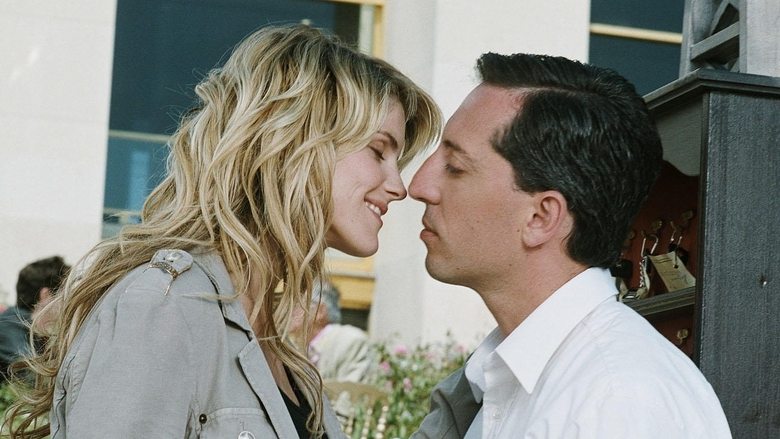
The Valet (2006)
Caught by tabloid paparazzi with his mistress Elena, a famous and beautiful fashion model, billionaire Pierre Levasseur tries to avoid a divorce by inventing a preposterous lie. He uses the presence of a passerby in the photo to claim to his wife that it's not him Elena is seeing but the other man, one François Pignon. Pignon is a modest little man who works as a parking valet. To make the story convincing, Elena has to move in with Pignon.

2 Days in Paris (2007)
Marion and Jack try to rekindle their relationship with a visit to Paris, home of Marion's parents — and several of her ex-boyfriends.
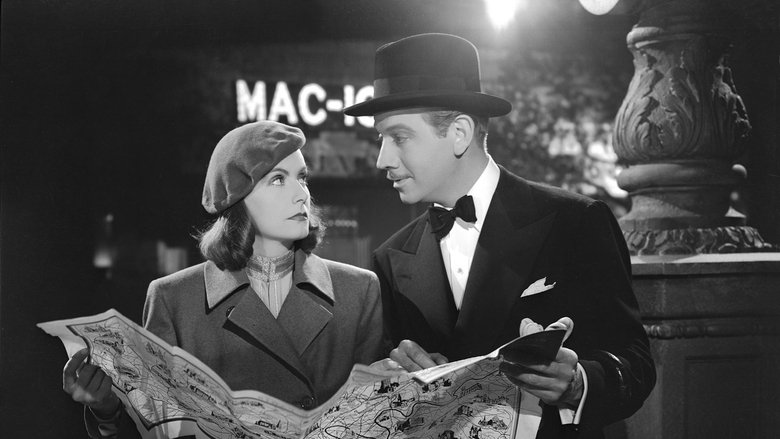
Ninotchka (1939)
A stern Russian woman sent to Paris on official business finds herself attracted to a man who represents everything she is supposed to detest.

Berlin Tunnel 21 (1981)
In Berlin in 1961, an American soldier and a German engineer join forces to build a tunnel under the Berlin Wall in order to smuggle out refugees, including the soldier's East German girlfriend.

Solo Sunny (1980)
Sunny is the singer of band trying to establish itself in the music-scene of East-Berlin. They play regular gigs in small towns, but Sunny feels out of touch with the audience and her life as a whole. She begins a relationship with the amateur saxophonist and studied philosopher Ralph who writes her a very personal song - but his obsession with death and unfaithful lifestyle is not for her. After getting into a quarrel with a band member who harasses her and telling off a show-host she is thrown out of the band. Abandoned, she struggles to regain control over her life.

Reclaim Your Brain (2007)
Frustrated, because he is forced to produce bad TV-shows, a manager of a TV-station, enters the station and manipulates the ratings, to initiate a TV-revolution.
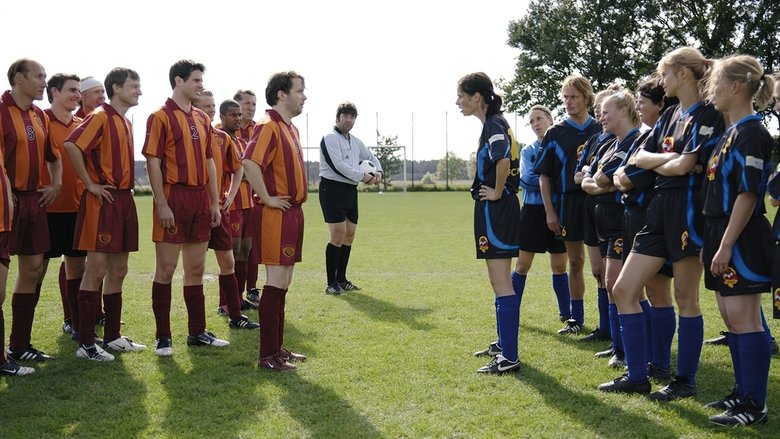
FC Venus (2006)
Anna is persuaded by her boyfriend Paul to move from Berlin to his home town of Imma. What the notorious soccer hater doesn't know, however, is that joining his best friend Steffen's law firm is just a pretext. In reality, Paul and his buddies are there to save the soccer club he co-founded, Eintracht Imma 95, from relegation. Anna soon realizes that the players' wives have nothing to say to their soccer junkies: Artificial turf in the bedroom, Effenberg bedding and weekends on the soccer pitch. When she finds out the real reason for the move, she mobilizes her fellow sufferers to counter-attack after a fierce bout of frustration and challenges Paul and his friends to the ultimate duel on the soccer pitch. The bet is on: women against men. If the women win, soccer is over - and Paul has to go back to Berlin with Anna. Forever. If the men win, there will be no more complaining.

Me and My Sister (2004)
Louise, who has just written a novel, comes to Paris to meet with a potential publisher. While in the city, she stays with her older sister, Martine, who in many ways is the exact opposite of Louise: she lives in a fashionable neighborhood, is cold to others, and has snobby friends, while Louise lives in a small town and is thoroughly unpretentious. Louise's apparent happiness -- and similarities to their mother -- gradually gets on Martine's nerves.